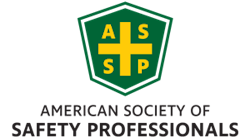On April 2, the American Society of Safety Professionals (ASSP) announced that it has adopted a formal position on child labor. The statement from the board of directors declares that ASSP opposes all forms of exploitative child labor and calls on governmental and nongovernmental entities to combat such practices in the U.S. and worldwide.
“While it is known that child labor is a significant issue in many developing countries, it sadly is also an issue in the United States that is seldom recognized,” said ASSP President Jim Thornton in a statement.
The International Labor Organization estimates that 22,000 children are killed at work every year. However, because much of child labor is hidden, it is difficult to obtain accurate data on how children are being affected.
ASSP has heard from many of its 35,000 global members who feel strongly about the child labor issue, and the Society has received valuable insights from its Governmental Affairs and Standards Development committees.
“There has been a focus to loosen U.S. child labor laws to help industry combat labor shortages,” Thornton said. “Wages for young workers are generally less than workers 18 and older based on the premise they are learning or less productive. The reality is those arguments are hyperbole to allow youth to be treated as lesser people.”
While ASSP opposes exploitative child labor practices, the Society supports reasonable approaches to young people working and realizing the associated benefits and responsibilities of having a job.
“We fully acknowledge the advantages of working as part of an individual’s maturation process,” Thornton said. “Our position is not meant to take a stand against young people working appropriate hours or in settings such as the family farm where experiences do not subject youth to hazards associated with farming and agriculture.”
ASSP’s position statement specifically notes exploitative child labor practices such as:
- Full time hours or an accumulation of hours that interferes with a child’s ability to attend school.
- Exposure to hard physical labor, hazardous conditions or toxic environments.
- Agriculture tasks involving dangerous equipment known to cause injuries and fatalities to young workers.
- Work activities that don’t allow a child to grow to become a healthy and productive adult.
- Any endeavor that demeans or exploits children harmfully or inappropriately.
With its child labor position set, ASSP will now pursue next steps that include:
- Publishing articles and hosting webinars to educate the occupational safety and health community.
- Advocating for prohibition of exploitative child labor in global standards such as the ANSI/ASSP/ISO 45001 and ANSI/ASSP Z10 occupational health and safety management systems standards.
- Using ASSP’s consultative status with the United Nations to support efforts to raise awareness.
- Encouraging ASSP members to help address the issue through supply chain requirements and environmental, social and governance (ESG) practices.
- Working with other occupational safety and health organizations to help prohibit exploitative child labor.
“This isn’t an issue we can solve alone, but entities working together can begin to turn the tide,” Thornton said.
